article_detail
Spanish News Today Editors Roundup Weekly Bulletin Apr 9
Reminder: There will be no Editor’s Roundup Weekly Bulletin next week. We’re taking a break at Easter, but we’ll be back with your next edition the week after, on Saturday April 16, 2022 and everyone will get the full number of Bulletins they’ve paid for. Meanwhile, you can still get all the latest news on our website, plus our Facebook and Twitter pages.
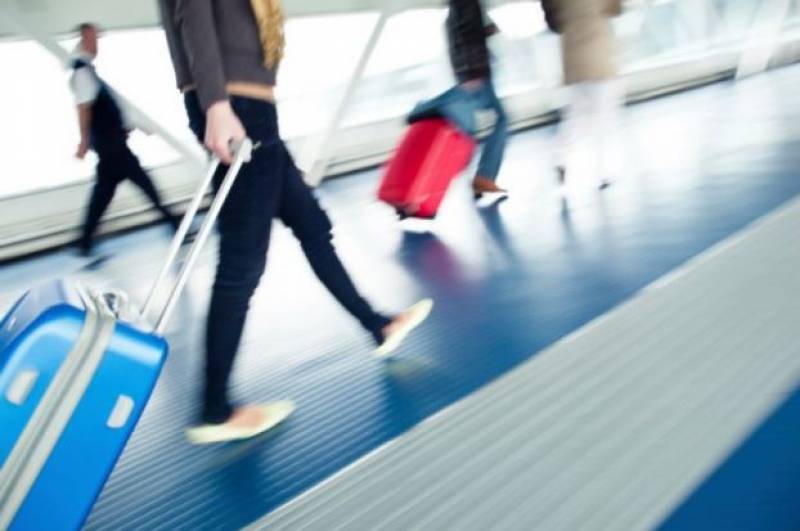
CLICK HERE FOR THE FEATURE ARTICLES "Spanish Tourist Office in UK falsely claims unvaccinated travellers can enter Spain" and "Easyjet cancels ten planned routes with Spain"
The Easter holidays are here! Some will be dreaming of a getaway to sunny Spain for the week, while others will be deliberately trying to escape Spain at Semana Santa and be anywhere else. Alas, there might be disappointment on both sides as a host of flights have been cancelled by easyJet and British Airways due to Covid infections amongst staff, and the Spanish Tourist Office in London made an embarrassing blunder when announcing the lifting of restrictions for UK passengers.
Anyone hoping to drive may also have their work cut out as ‘Operación Salida’ begins and 3.7 million cars are expected to hit the road in Spain, with people clamouring to get to the seaside for a break. Plus, the cost of petrol is still prohibitive, despite the 20 cent per litre discount recently brought in.
And then there’s the weather, which is set to turn ugly again as we go into Easter week. Hold on to your hats…
After the storm
It’s been a grisly sort of month, and we surely deserve some sun now, right? We’ve been given a sort of reprieve at the end of this week, but don’t get too used to it. The weather forecast is actually predicting rain for the beginning of Easter Week in Spain, just in time to spoil the processions and Semana Santa events that have been so carefully planned and which everyone was looking forward to after most of them were cancelled (or at least heavily scaled back) for the last two years due to coronavirus.
Still, while the rain is a pain, at least the snow which fell in some higher altitude areas has gifted us with beautiful photos and videos. In the Murcia Region, the snow forced road closures in the Sierra Espuña natural park and the northern mountainous area, but the emergency services and snowploughs were able to capture on video the true heartpounding excitement and sheer, childlike joy of driving through a wintry wonderland!
â¹ï¸ #SierraEspuñaPR Los accesos desde #ColladoBermejo (1.200 metros) a los #PozosdelaNieve han sido cerrados preventivamente por la #nieve caída en las zonas altas del Parque Regional âï¸ðï¸@RM_Agua @PENCHO3 @112rmurcia @P_Civil_Alhama @PCivil_Totana @emergenciasmula @PCALEDO112 pic.twitter.com/DKMB1yAxbR
— SierraEspuñaParque (@SierraEspunaPR) April 5, 2022
In Alicante, meanwhile, some points of the Sierra de la Serella were buried in snowfall more than 10 centimetres thick, giving rise to some truly breathtaking images of snow-capped mountains that look more like Switzerland than Spain.
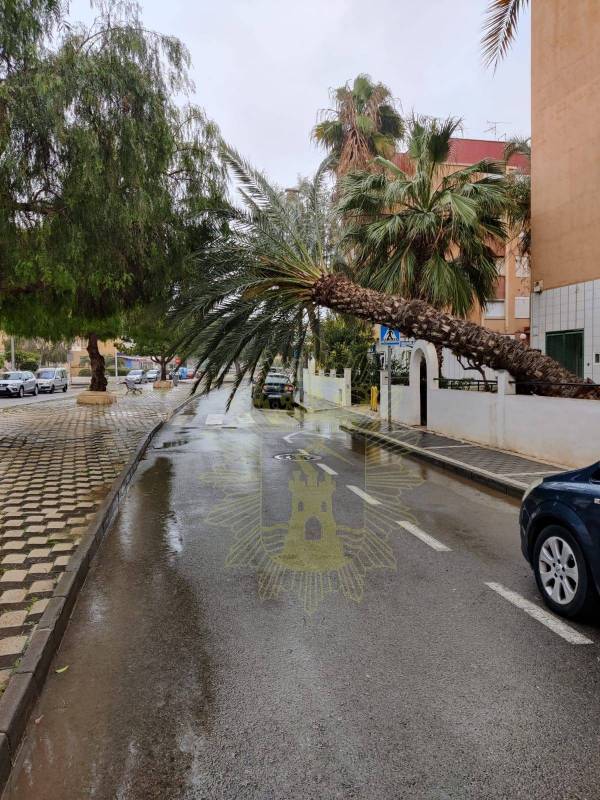 It wasn’t all fun and games, though. Down in the coastal areas, the howling wind whipped up a storm and enormous waves that caused extensive damage. Mazarrón was actually the eighth wettest place in the whole country last Monday, and had its share of fallen palm trees and road closures to prove it. In Murcia’s Cabo de Palos, the municipal outfall of Cala Reona, a pipe which transports the wastewater from La Manga that has been treated in the municipal sewage treatment plant to the Mediterranean Sea, broke off and was left floating around in the water. In Águilas, the dramatic waves damaged parts of the port and beach, and almost drowned a member of the yacht club but for the brave actions of a nearby sailor who rescued him, as shared in a terrifying video by the club itself.
It wasn’t all fun and games, though. Down in the coastal areas, the howling wind whipped up a storm and enormous waves that caused extensive damage. Mazarrón was actually the eighth wettest place in the whole country last Monday, and had its share of fallen palm trees and road closures to prove it. In Murcia’s Cabo de Palos, the municipal outfall of Cala Reona, a pipe which transports the wastewater from La Manga that has been treated in the municipal sewage treatment plant to the Mediterranean Sea, broke off and was left floating around in the water. In Águilas, the dramatic waves damaged parts of the port and beach, and almost drowned a member of the yacht club but for the brave actions of a nearby sailor who rescued him, as shared in a terrifying video by the club itself.The torrential downpours also brought gale-force winds that led to decimation of several beaches in Alicante province. Four-metre waves virtually obliterated large parts of the coastline in towns such as Orihuela, Torrevieja, Villajoyosa and Elche and Guardamar del Segura, destroying paths, flooding beach bars, and dumping seaweed and debris, along with the corpses of countless jellyfish, dolphins and turtles on sands. It’s fair to say the 40km of coastline in the Vega Baja fared the worst during the storms where local Town Halls watched a month of beach preparation work ahead of an anticipated influx of visitors literally washed away. Local authorities are still assessing the extent of the damage caused, but it’s feared that restoration and repair work is unlikely to be completed before Easter.
The inclement weather has raised a question mark over the viability of vacations in the Costa del Sol this year. Beaches, bars and other seafront attractions on the Costa del Sol have been badly damaged by the storms, so much so that the head of the Costa del Sol tourist board has asked the central government in Spain to declare the Costa del Sol coastline a disaster area. The beaches affected include those in the popular holiday destinations of Malaga city, Marbella, Mijas, Nerja, Fuengirola and Torremolinos, and work has already begun to try to clear the debris and fix the broken installations as soon as possible.
What’s more, the trail of sinkholes and potholes on the roads left behind by the stormy weather in Spain will take longer to clear up, and is actually symptomatic of a larger problem in many regions, which is an infrastructure in the country that is summarily incapable of coping with any weather that’s not sunny and balmy. Yes, it’s often sunny in Spain, but at the same time the southern and eastern costas are no stranger to sudden, powerful Gota Fría storms, and these actually seem to be getting more powerful and more frequent with each passing year because of the climate crisis.
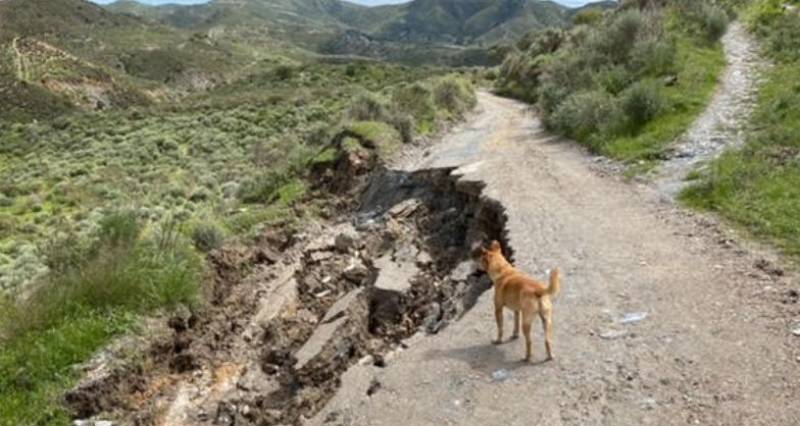
What’s needed is more investment in road infrastructure and flood defences in Spain. The flooding is only going to get worse as we go along, and if the central Spanish government, the regional governments in each Autonomous Community and the local Town Halls all skimp on repairing the damaged roads and facilities now, we’ll just end up paying an even higher price next year, and the year after that, and the year after that…
Pump it up
It’s now been a full week since the Spanish government’s 20 cent per litre fuel discount came into play, and it’s been an eventful few days at the pumps to say the least. In the first hours, cars were queued along the forecourts in Spain; payment systems crashed, incorrectly configured tills weren’t applying the bonus and frustration was felt by motorists and business owners alike.
Nonetheless, low-cost filling stations in particular are feeling the pressure as the government was a little late in coughing up its contribution to the discount, and representatives are threatening to sue Spain and the EU for millions in compensation for the disruptions.
Although petrol and diesel prices have actually fallen in Spain even without the discount added, they will still remain at levels never before seen during Easter – 2022 will see fuel reach its highest price point ever for Semana Santa. Filling up a 55-litre tank with petrol will cost an average of around 88.71 euros, about 16.11 euros more than this time last year, while for petrol, refuelling will set you back 90.58 euros, an increase of around 25.13 euros.
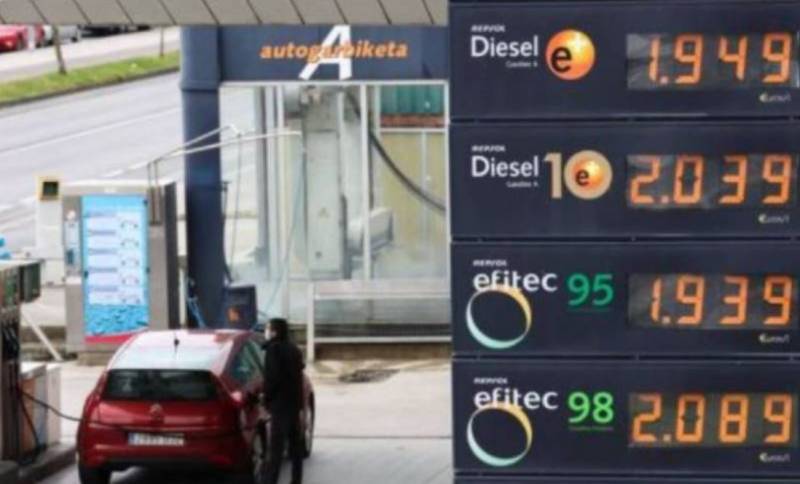
No doubt this will all be ironed out in the coming days, but as motorists are dashing to the pumps for cheaper petrol and diesel, the ever-watchful Big Brother at the DGT has warned that drivers could be even more out of pocket if they don’t adhere to its filling station etiquette.
Specifically, engines have to be totally switched off before you get out of your car and put the pump in to refuel. That includes the lights, radio and any other electrical systems. In addition, mobile phones should always be turned off before topping up the tank. This last point is the most important, according to the Traffic Authorities, as possible contact between a spark or radiation and fuel vapours could easily lead to a devastating fire.
More danger at Spain’s gas pumps as police in Alicante arrested an extremely agitated and aggressive 29-year-old man armed with an axe at a petrol station. Terrified staff called the National Police who then became targets themselves after attempts to calm the suspect failed and he launched the weapon, with a 15-centimetre blade, at one of the officers. The officer was forced to throw himself onto the floor way to avoid being hit “squarely”, and the assailant was arrested on suspicion of attempted murder, although police are investigating the case to determine if the detainee suffers from any illness that may explain his extreme actions before the case is put before the courts. Perhaps he was upset over not being given his due discount, or was just trying to get someone else to turn off their mobile phone...
Travel bug
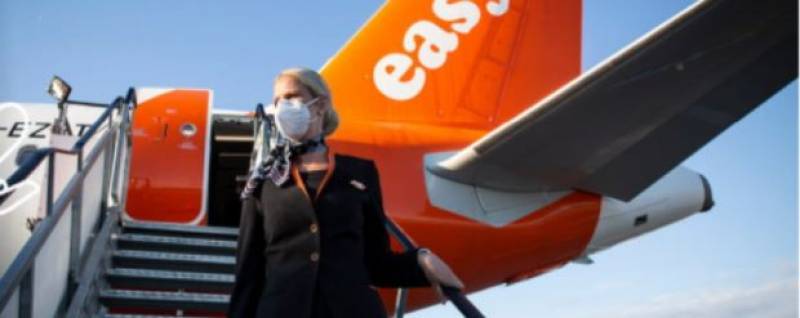 After becoming the latest airline to scrap mask-wearing on board at the end of last month, British budget carrier easyJet may be having a strategy rethink this week after it had to cancel hundreds of flights due to staff shortages for Covid-related illnesses.
After becoming the latest airline to scrap mask-wearing on board at the end of last month, British budget carrier easyJet may be having a strategy rethink this week after it had to cancel hundreds of flights due to staff shortages for Covid-related illnesses.Last weekend, more than 200 flights were axed at short notice and although the carrier promised it was sorting out the “rostering” issues, a further ten routes with Spain were unceremoniously cancelled on Tuesday.
British Airways has also cancelled dozens of last-minute flights as such a high proportion of staff are out sick, and carriers fear the situation will get worse in the coming days due to the level of ongoing illness in the UK.
It’s not just airline staff catching Covid that’s the problem, though. Misinformation and fake news about the rapidly evolving coronavirus restrictions are also getting passengers riled up.
With so many changes to Covid restrictions afoot, it’s normal to think that intrepid travellers might turn to the experts for a little information before their trip, but many are thinking twice about relying on the Spanish Tourist Board in London, which was forced to apologise for a mortifying blunder this week that really got tourists’ hopes up.
On Wednesday evening, The Tourist Office website stated that unvaccinated Brits would be granted entry to Spain once they could show a negative Covid test. Furthermore, it claimed that UK passengers wouldn’t need to complete a Passenger Locator Form.
Embarrassingly, just hours later, Pedro Medina, deputy director of the Spanish Tourist Office in the UK, admitted that his department has misinterpreted the information in Spain’s Official State Gazette (BOE), and retracted the earlier announcement.
Unvaccinated adults travelling from the UK to Spain can only enter the country for tourism purposes if they can provide a recent Covid recovery certificate; the only exception to the Spanish rule of entry is for unjabbed teenagers aged between 12 and 17 who can show a negative coronavirus test prior to arrival.
Coronavirus
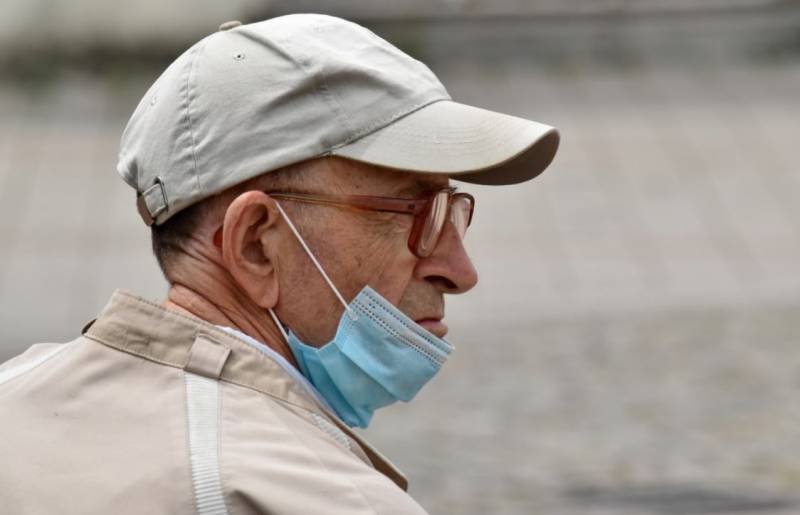
Assuming you actually manage to catch a flight to Spain with all of the chaos, you can breathe easy as the Ministry of Health has finally decided to ditch mandatory masks indoors after Easter. Initially, there were calls to do away with the measure in time for Holy Week, but the government deferred to the experts on this one and as of April 20, it will no longer be obligatory to wear masks inside.
The full details have yet to be divulged, but it’s expected that the safety measure will still be required in certain areas, such as public transport, hospitals and nursing homes.
Until then, Spain is focused on settling into the first week of its new relaxed “transition phase” of coronavirus, and in that time the incidence rate in over-60s has dropped. This is the only data we’ve got now as, since the new surveillance and control strategy for Covid-19 entered into force, they now only report infections among immunocompromised and elderly people.
For this reason, the Ministry of Health has advised that the data “should not be compared with those of reports prior to the entry into force of the new strategy”. Basically, it’ll be another couple of weeks until we start to get a true picture of the development of the pandemic under this new system.
One surprising patient who sadly contracted Covid in Spain this week was a wild European river otter, the first ever case recorded in the world in this species, the remains of which were discovered near a reservoir in the Valencia region. Researchers are attributing the infection to probable contact with contaminated wastewater, with samples taken from the animal’s RNA found sequencing changes of the virus which had already been identified in humans, suggesting that the otter was infected by human waste.
Among humans, the relaxing of Covid hygiene measures like handwashing and mask-wearing means that the common flu is now making an uncommon comeback this spring. Normally, the flu experiences its peak in December, January and February, but this year has rebounded later than that: between March 21 and 27, the rate of transmission of the flu was still at 36.8%, compared to just 5.3% of coronavirus. However, this flu is much less severe than coronavirus, causing the usual symptoms such as fever, sore throat and muscle pain and only leading to hospitalization in “very occasional, exceptional” circumstances.
For all the latest coronavirus news and updates in Spain, use the following link: CORONAVIRUS LATEST NEWS
Murcia
In Cartagena this week, demo workers received a shock while they were knocking down a building in a routine demolition project that turned into something much more surprising – and much more valuable – than anyone expected. The workers were in the middle of demolishing the building located at number 24, Calle San Vicente when they stumbled across the shaft of an ancient Roman column.
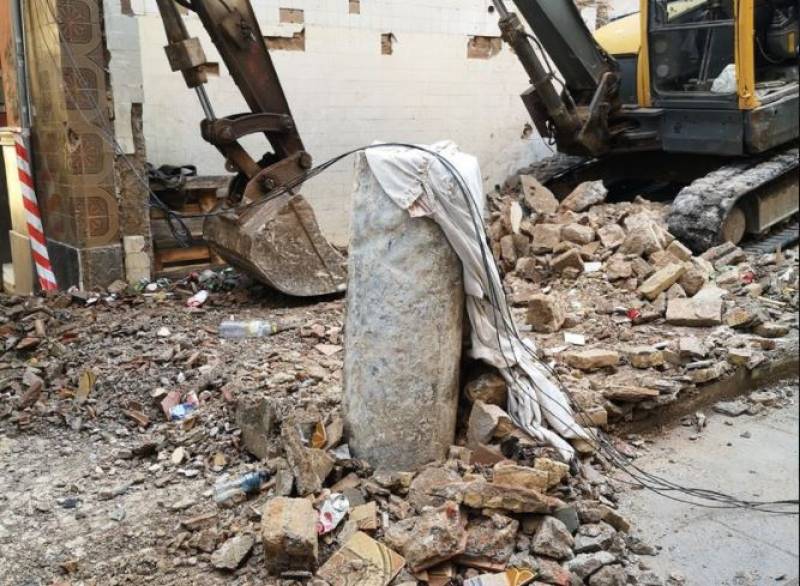
The building was actually built in 1885 and declared to be in imminent ruin last December. But the architectural treasure it concealed inside was much older than the 19th century and, once the workers downed tools and called in a team of expert archaeologists to take a look, it was hypothesised that the pillar probably came from the ancient Cerro del Molinete archaeological site and was brought to Cartagena to be reused in the construction of the building over 100 years ago, possibly as a guard post to protect the corner of the building from the passing and turning vehicles.
The pillar has now been transferred to the Municipal Archaeological Museum and, with any luck, will soon be open to visitors.
Four earthquakes were registered in Murcia this week. The first three were small affairs in Alhama de Murcia, Librilla and Pliego over the weekend – each of them measuring between 1.5 and 1.7 on the Richter scale. But the fourth, which occurred in the early hours of Thursday morning and whose epicentre was in Molina de Segura, was around twice as strong, coming in at magnitude of 3.1. It was strong enough to be felt as far away as Murcia city, Lorquí and Archena, but luckily no one was hurt. The main complaint most residents had was that the loud booming noises and the shaking woke them up at 3am and they couldn’t get back to sleep.
Something else that may have been keeping them awake is their tax returns. The period for filing IRPF income tax returns in Spain started on Wednesday this week, and anyone who had earnings in Spain in 2021 has until June 30 of this year to declare it.
In the Region of Murcia, some 650,000 taxpayers will be able to save close to 18 million euros between them, thanks to a lowering of the tax rate for individuals. The bonus is expected to especially benefit people in low- and middle-income brackets, since tax on wages of between 20,000 and 34,000 euros will drop from the 15.5% that was applied in 2018 to 14.18% this year, and it will continue to be progressively reduced until it is fixed at just 13.3% in 2023.
 Pensioners can receive additional financial support in Mazarrón with a new scheme being debuted by the Town Hall to subsidise hearing aids, glasses, dentures and other dental treatment. For a maximum of two hearing aids, over 65s resident in the Murcia town can get a grant to help with the cost of up to 3,000 euros, while the subsidy for dental treatment reaches up to 1,500 euros and for a pair of glasses up to 300 euros. But anyone looking to benefit from the grants has to be quick – the deadline for getting applications in to the town’s various Social Services Centres is Tuesday April 19.
Pensioners can receive additional financial support in Mazarrón with a new scheme being debuted by the Town Hall to subsidise hearing aids, glasses, dentures and other dental treatment. For a maximum of two hearing aids, over 65s resident in the Murcia town can get a grant to help with the cost of up to 3,000 euros, while the subsidy for dental treatment reaches up to 1,500 euros and for a pair of glasses up to 300 euros. But anyone looking to benefit from the grants has to be quick – the deadline for getting applications in to the town’s various Social Services Centres is Tuesday April 19.For news on events coming up soon in the Murcia and Alicante regions, be sure to check out our EVENTS DIARY!
Spain
As fuel becomes cheaper across Spain, you may want to save the extra few quid for your next trip to the grocery store, as a new survey has confirmed that this year shoppers will pay around 500 euros more for the shopping in their trolleys. And this isn’t just luxury items we’re talking about either: the researchers compared the prices of 159 everyday products in nine national supermarket chains, both name-brand and own-brand, and costs have skyrocketed across the board.
The biggest offenders are olive oil (53.6%) and sunflower oil (49.3%) as a result of increased demand due to the war in Ukraine, followed by washing-up liquid (49.1%) and margarine (41.5%). Next, with increases of between 30% and 40%, are pasta, bananas from the Canary Islands and salmon.
While everyone is trying to penny-pinch a little at the moment, we heard the disconcerting news this week that Spain’s energy giant Iberdrola suffered a cyber-attack which has affected 1.3 million customers, although the company has reassured that the hackers were unable to access “sensitive” information such as bank details. The attackers did however manage to infiltrate the system to glean data like names, DNI/NIE identification numbers, addresses and telephone numbers.
Representatives have, however, recommended that its customers be especially cautious of any emails or communications purporting to be from Iberdrola.
Alicante
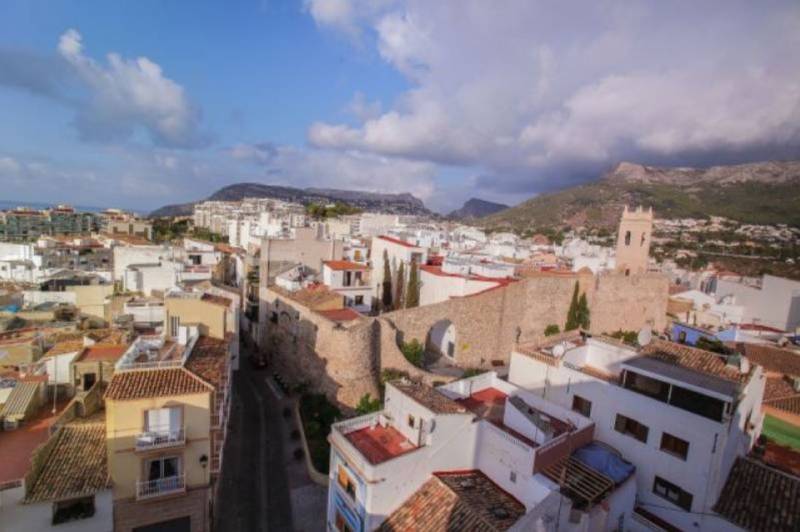
The normally stunning beaches are just one of the major attractions for expats looking for a second home in Alicante, particularly the Marina Alta area which is home to 13 of the priciest towns in the Valencia region when it comes to house buying. The area is experiencing a rise in property prices and real estate invenstment which has seen the most exclusive homes become even more expensive. In fact, Pego, Ondara and Beniarbeig are the only towns in Marina Alta where the price per m2 is below 1,000 euros, a far cry from Moraira where costs soar to 3,173 euros/m2. But there are bargains to be had further inland.
Despite the property price tags, Calpe in the Marina Alta has seen population growth during the pandemic as more expats settle in the popular coastal town. As of January 1 2022, 24,096 people are registered in the municiplaity, up 500 since the last update, which represents a 2% increase in less than 18 months. In Calpe, the average cost of housing is 2,274 euros/m2, and around 1,700 Brits live in the town, drawn by the climate, beaches and proximity to Alicante-Elche Airport and other popular resorts such as Benidorm and Denia.
On the darker side, drug raids are far from uncommon across Spain, and this week police in Alicante province managed to shut down a trafficking operation in Rojales in which three Britons have been charged with growing marijuana and sending it in parcels to Ireland and Holland. The two men and one woman, aged 26, 30 and 32, were eventually thwarted after the pungent contents of the packages raised eyebrows and suspicion at a transport office in Almoradí in February, and an investigation began.
It turns out the trio were allegedly attempting to mail six kilos of marihuana, with one of the men posing as a parcel delivery man, and consequent raids at two properties in Rojales unearthed more than 500 marijuana plants, 200 branches laid out to dry and an array of items used for cultivation. The Brits were released on charges and banned from leaving the country ahead of a court hearing in Orihuela.
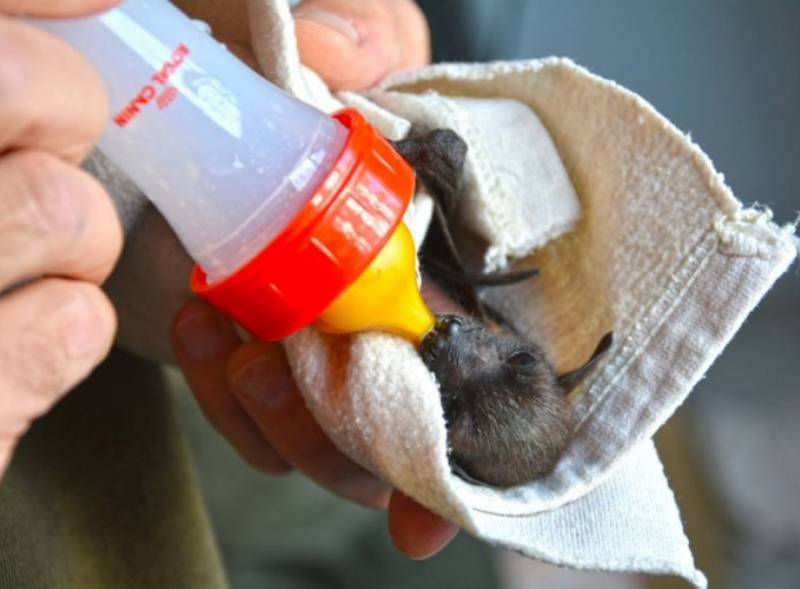 On a much more adorable note, Terra Natura Benidorm welcomed tiny new additions to the zoo following the birth of six baby fruit bats, also known as flying foxes. Currently classified as vulnerable due to threats to their population in the wild, the arrival of the eight-centimetre-long bats, which weighed just 50 grams at birth, is understandaby cause for celebration at the facility which is home to more than 1,500 animals of 200 different species.
On a much more adorable note, Terra Natura Benidorm welcomed tiny new additions to the zoo following the birth of six baby fruit bats, also known as flying foxes. Currently classified as vulnerable due to threats to their population in the wild, the arrival of the eight-centimetre-long bats, which weighed just 50 grams at birth, is understandaby cause for celebration at the facility which is home to more than 1,500 animals of 200 different species.“The populations of flying foxes have declined considerably in recent years due to direct hunting, deforestation and the progressive degradation caused by the cultivation of palm oil for industry,” explained Terra Natura Benidorm. In fact, according to records kept by the International Union for Conservation of Nature, fruit bat populations have fallen by almost a third over the last 15 years.
Andalucía

While the weather may not immediately invite you to strip your clothes off and sunbathe just yet, you’re now free to do so on any beach in the popular tourist destination of Cádiz. The local authorities have voted to change the law and make it legal to go nude on any beach in the city. Unsurprisingly, the Spanish Naturist Federation has hailed the move as a boon for “freedom of expression”, while the president of the local Association of Large Families isn’t so enthusiastic, saying that nudism is not “respectful” when there are children around.
It will certainly be a change of scenery for visitors to Cádiz, who will now be able to ogle at the bare bodies of sunbathers on, for example, the iconic Playa de la Caleta and Cortadura beaches, from the comfort of the busy seafront promenade, which is popular for a (fully clothed) stroll from one end of the city to the other. It’s not entirely clear yet what constitutes the beach though… will this include the promenade as well, or the chiringuito beach bars? Can naturists just stroll willy-nilly (pun intended) in and out of the bar, and sit on the seats, and walk up and down the paseo marítimo baring all for the world to see? Or will they be limited to the sand?
The really good news, which has almost flown under the radar with the furore about nudism, is that with the new law bicycles can be ridden along the beaches, and dogs may go on the beaches during the entire low season, usually between October and Easter.
Just off the coast of Cádiz province, meanwhile, a fisherman has a scare this week after he had to be rescued when his boat was left rudderless and floating following an attack by killer whales. Attacks by killer whales have risen exponentially off the coast of Spain in recent years, with fishing boats in Andalucía proving particularly susceptible. Experts believe that the incidents are down to a few curious and boisterous youngsters getting too close to the vessels, and so far, no aggressive behaviour towards humans has been reported.
A direct trainline between Granada and Malaga was launched this week, to the delight of regular travellers. Thanks to a new 7.5-kilometre stretch on the new high-speed line, the Avant train will complete two trips per day in each direction, with the journey now taking just one hour and 10 minutes.
Over on the eastern edge of the region, residents in the Cuevas del Almanzora golf resort were rocked this week when an earthquake shook the area on Monday morning. Thankfully, the quake measured just 2.0 on the Richter scale and no damage to property or to life was reported.
There’s a light at the end of this tunnel as legendary pop/rock group Simple Minds have announced that they are alive and kicking and will be playing two dates in Andalucía on their 2022 world tour, performing first at the Starlite Festival in Marbella on July 29 and then at the Tío Pepe Festival in Jerez de la Frontera, Cádiz on July 31. Don’t you forget about it!

You may have missed…
After a vote in Madrid this week, the Mar Menor will be the first ecosystem in Europe with its own rights.
Authorities have warned of a scam involving the sale of supposed extra virgin olive across Spain which is actually vegetable oil made from seeds and which could pose a significant health risk.
From the Costa Cálida in the south to the mountains of Jumilla, Murcia has some fabulous landscapes and fascinating sights to discover on foot.
Those with financial interests in Spain will struggle to get a Spanish visa in the upcoming weeks due to the ongoing strike in the Spanish Embassy and Consulates in the UK.
Passengers in Murcia will once again be able to travel by train to Aragón in the north of Spain as Renfe has re-established the Zaragoza-Teruel-Valencia-Alicante-Murcia route.
That’s all from us for this week. If you like reading your weekly bulletin and know someone else who might want to read it too, you can send them this link to sign up and start receiving the email too: https://murciatoday.com/weekly_bulletin.html
Remember that next week there won’t be an Editor’s Roundup Weekly Bulletin going out because of the Easter holidays, but you can still follow all the latest news on our website, Facebook pages and by following us on Twitter @MurciaToday.
Have a happy Easter, everyone, and we’ll see you when we come back!
Got a business in Spain? Advertise with us.
Murciatoday.com and its affiliated Spain Today Online sites can help bring your business to a wider audience – over 350,000 unique readers every month. We’ll provide you with custom-made banner ads, a personalised listing in our Business Directory and special feature articles about your particular business niche.
Don’t limit yourself to the yellow pages. Get online! After Covid, can you afford not to? Contact us today to find out how we can get wider exposure for your business.
Contact Spanish News Today: Editorial 966 260 896 /
Office 968 018 268


















